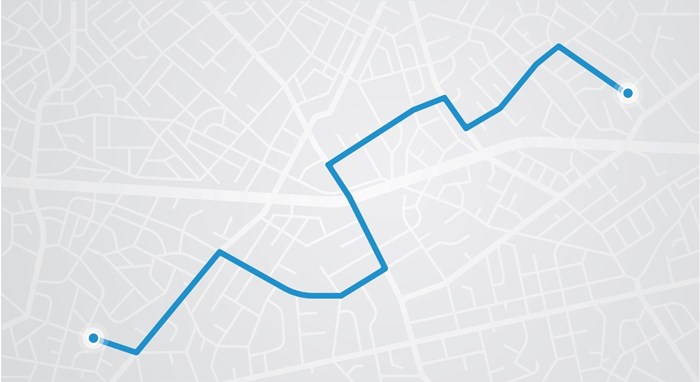'Roadmaps' to success – from med student to resident

Plastic surgery over the last decade has become one of the most competitive fields in all of medicine, with a 73.8 percent match rate recorded in the 2020 Match statistics. The "arms race" to match has produced the highest average Step 1 score (249), highest average Step 2 score (256) and second-highest mean abstracts, presentations and publications (n=19.1) among all specialties.
Examination of applicant demographics in the Match statistics also reveals a recognized problem of poor representation of Black and Hispanic residents, with minimal change year-over-year. Applicants without a home program face an additional disadvantage by having to spend thousands of dollars to attend away-rotations in an effort to improve their chances of matching. Among matched applicants in the 2020 Match, only 66 percent of applicants came from a non-top-40 medical school based on NIH funding.
But help has arrived for medical students who find it difficult to match into a plastic surgery residency program: the recently launched Recruitment of Accomplished & Diverse Medical-student Applicants into Plastic Surgery (ROADMAPS) program, an effort by ASPS in conjunction with the American Council of Academic Plastic Surgeons. The program strives to level the playing field for less-equipped applicants by providing resources and opportunities that many others enjoy.
Small numbers, large costs
Although most surgical subspecialties are highly competitive, plastic surgery is among the smallest subspecialties in terms of available resident spots. Therefore, because there are small class cohorts that can range from one to five residents – and because residencies last six to seven years – applicant "fit" becomes crucial. Typically, "fit" is determined by assessing applicants beyond their academic achievements; however, an understanding of an applicant's personality and character can be difficult to assess in one interview. In addition, applicants without home programs are often required to complete several away-rotations as an "audition" for other programs. These away rotations can be costly – exceeding thousands of dollars. Naturally, applicants with stronger financial backing can apply to, and potentially attend, more away-rotation "auditions."
Medical students who enjoy home programs also have the advantage of getting to know faculty beyond the professional level. Additionally, many of these home programs are active in
research, with many offering formal and informal mentorship opportunities for the students. In the 2020 Program Director survey (n=16), 75 percent of program directors cited involvement in research (4th-most cited factor) – with a mean importance rating of 4.3/50 as factors in interview selection. In ranking applicants, research was cited 55 percent of the time, with a mean importance of 4.3/5.0. Many applicants without adequate research opportunities take research years – but these research years can be unpaid positions, further widening the financial gap.
The end result is a system that works against those with less financial backing; minorities; and those without home programs.
Roadmaps made for med students
The COVID-19 pandemic opened the door for technology to benefit applicants with financial limitations and those without home programs. Virtual away-rotations now allow applicants to gain familiarity with distant programs without the associated expenses. Additionally, many programs offer virtual meet-and-greets and other social media activities to better advertise themselves to students. Previously, students would have to be selected for an interview to further explore the program.
Through the program, students can access pre-recorded videos and transcriptions to describe steps to take in each year of medical school to generate a competitive application. Additionally, students will have access to a diverse array of resident mentors who can provide valuable guidance in navigating the complex specialty of plastic surgery. Since many medical school curricula do not include plastic surgery topics, ROADMAPS offers students the opportunity to learn the wide array of procedures in plastic surgery.
All resources provided by the ROADMAPS program undergo review to ensure that it remains a centralized, trustworthy resource to foster the growth of future generations of plastic surgeons. We encourage all residents and trainees to let students know about this new program.
An online ROADMAPS forum was slated to go live Oct. 9 during ASPS Medical Student Day (past the deadline for this Plastic Surgery Resident issue, therefore no link is available), so please be on the lookout for this opportunity for students. We hope that it can serve as a means to "close the gap" and improve the recruitment of students of all backgrounds to this wonderful specialty.
Dr. Prabhu is a medical student at Wake Forest School of Medicine, Winston-Salem, N.C.; Dr. Lopez is a head and neck oncologic surgery Fellow.